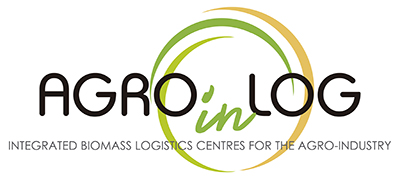Biomass Business Study Uses Logistics as a Measure of Commercial Success
The AGROinLOG (Integrated Biomass Logistics Centres in the Agro-Industry) project will run for 42 months, and is scheduled for completion at the end of May 2020.
Editor's Note: Dr. Luca Urciuoli, Associate Professor at the MIT-Zaragoza International Logistics Program. For more information on the AGROinLOG research contact the project’s Principal Investigator: [email protected]
Enterprises engaged in using waste products as raw materials for bio-commodities help companies and countries to meet their sustainability goals. But to be successful they also must be commercially viable. A new research project backed by the European Commission takes a novel approach to evaluating these enterprises, by analysing the financial performance of their supporting supply chains.
The AGROinLOG (Integrated Biomass Logistics Centres in the Agro-Industry) project will run for 42 months, and is scheduled for completion at the end of May 2020. Fourteen participant organizations contribute expertise in areas as diverse as industrial chemistry, mechanical engineering and supply chain management. The Zaragoza Logistics Center in Zaragoza, Spain, is leading the research to develop a supply chain framework for evaluating Integrated Biomass Logistics Centres (IBLCs).
The research is focused on three agricultural industry applications: alfalfa farming (Spain), olive oil production (Greece), and cereal processing (Sweden). Alfalfa can be turned into solid biomass pellets and construction materials. Organic matter from olive tree pruning can be used in pellet production and as an alternative raw material for particle board construction. Other residuals from the olives go into intermediate bioproducts for cosmetics and pharmaceutical markets. The energy industry uses cereal chaff and straw as a feedstock: for example, in the production of bioethanol, an additive for diesel fuel and charcoal.
Many of these markets have significant growth potential. For example, there is a huge and growing market for renewable fuels derived from organic waste products. The International Energy Agency estimates that in 2015, the share of renewables in the total OECD region’s primary energy supply reached 9.7%, the highest share since the IEA inaugurated its time series analyses in 1990. The largest portion of renewable primary energy supply in the OECD comes from biofuels and waste, says the IEA, which accounts for 55.1% of the renewable supply. Of these biofuels, solid biofuels, including wood, wood wastes, other solid wastes and charcoal, constitute the largest share of the supply.
But creating profitable businesses that harvest the waste output of agricultural operations and use it as a feedstock to produce bio-commodities could require significant investment. The reuse of agricultural waste tends to be localized. In local operations, there is little need for advanced supply chain management techniques to make the bio-commodities business competitive and profitable. Opening the business to more distant customers would enable IBLCs to access several geographic markets. In addition, they could apply tailored procurement and network design strategies to achieve economies of scale, lower costs, ensure continuous replenishment and thereby overcome seasonality issues that can be restrictive in the agricultural sector.
Moreover, the enterprises must compete with existing businesses. For example, cereal straw is already used widely as a raw material in the production of bio-ethanol. Business receives government support to build and maintain a market for bio-ethanol, and a goal of the AGROinLOG project is to find out whether this type of enterprise can be economically self-sustaining – and most of all, what strategies and techniques as well as training resources will be needed to set up the supporting supply chains.













